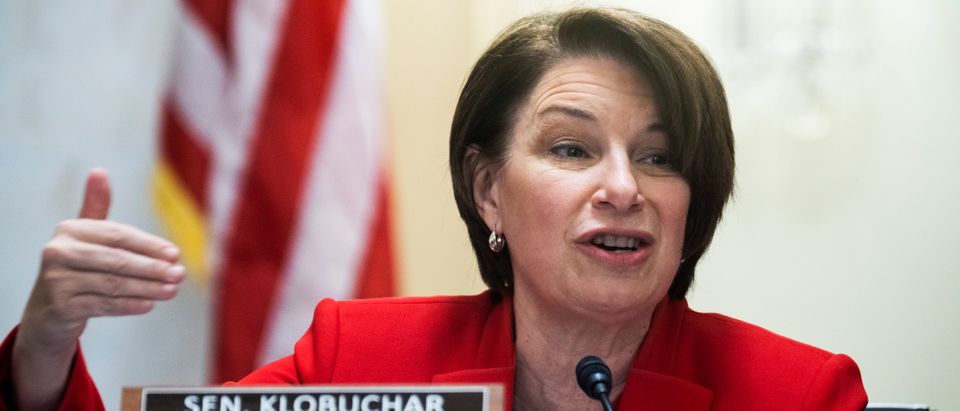Democratic Sens. Amy Klobuchar of Minnesota and Dick Durbin of Illinois, and Independent Maine Sen. Angus King released a bill on Tuesday that would change the process by which senators can object to electoral votes.
The Electoral Count Modernization Act raises the threshold necessary for members of Congress to sustain an objection to a state’s electoral vote slate, from one representative and one senator to one-third of each chamber. The proposal also limits the ability of members to object to an electoral slate by requiring them to explain why the slate “is not the valid certificate of identification of electors” or an elector is constitutionally ineligible to serve in that capacity.
The bill also pushes back the date by which states must certify their electoral slate, to allow for recounts and court challenges, and places responsibility for identifying the correct electors with the governor.
“Experts across the political spectrum agree that the Electoral Count Act of 1887 needs to be updated to reflect the current realities and threats facing the United States and our election process,” the senators said in a statement. “With Congress reconvening after its January state work period, we thought this was the proper time to share the draft legislative text that we believe serves as a foundational outline for key reforms that address the shortcomings of the 1887 law.”
Inbox: Sens. Durbin, King, and Klobuchar release draft legislative text for their proposal to reform the Electoral Count Act: https://t.co/dqXeZGewnH pic.twitter.com/ZbX1REeTtu
— Grace Panetta (@grace_panetta) February 1, 2022
Klobuchar, Durbin and King are working independently of a bipartisan group of nine Republicans and seven Democrats convened by Republican Maine Senator Susan Collins to discuss amending the 19th century law.
“This is no small thing. I think it is really important that we do this reform. And I hope it can be done on a bipartisan, overwhelming basis,” Collins said on Sunday of the reform effort.
Advocates for reform have argued that the Electoral Count Act as written is vague and does not provide clear guidelines as to Congress’ role in certifying presidential elections. The law was passed 10 years after the contested 1876 election was decided by a commission that was appointed to assess dueling electoral slates submitted by Florida, Louisiana, Oregon and South Carolina.
In addition to the two Senate groups, the House Administration Committee released a majority report urging changes to the Electoral Count Act. That report suggested increasing the number of objections required to open debate from one member of each chamber to one-third of each chamber, removing the vice president from his role as presiding officer, and limiting the ability of members to object.
Amendments to the Electoral Count Act are intended to address proposals from supporters of former President Donald Trump that the vice president or Congress can easily reject electoral slates. Constitutional lawyer John Eastman produced two memos claiming that Vice President Mike Pence held “the authority to make that determination under the 12th Amendment,” and should reject the electoral slates. In another Eastman scenario, Pence could order the House of Representatives’ state delegations to vote on the victor. (RELATED: ‘Total Agreement’: Trump Disputes NYT Report, Says Mike Pence Believes He Can Decertify Electoral College Vote)
Former White House trade advisor Peter Navarro explained during a January MSNBC appearance that a plan he called the “Green Bay Sweep” would allow Congress to reject the electoral vote slates of six states and call on the legislatures to send new electors.
“We were going to challenge the results of the election in the six battleground states,” Navarro said. “These were the places where we believed that, if the votes were sent back to those battleground states and looked at again, that there would be enough concern amongst the legislatures that most or all of those states would decertify the election.”
Trump endorsed Eastman’s reading of election law in a Sunday statement, while opposing the bipartisan effort to amend the Electoral Count Act.
“What they are saying, is that Mike Pence did have the right to change the outcome, and they now want to take that right away. Unfortunately, he didn’t exercise that power, he could have overturned the Election!” Trump said.


